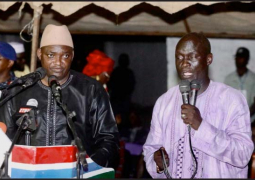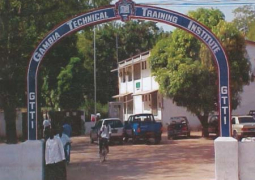The people of Mandinaring in Kombo North District will be revelling in their new-found protection from the scourge of malaria. As part of activities marking its second anniversary, Global Unification-The Gambia (GU), recently donated insecticide treated bed nets, worth over D12,000, to the people of the area. This is of course wonderful news and the donors must be commended, but it does raise the question as to why they did not already have them? Bed nets are recognised by the world Health Organisation as one of the most effective ways of combating this terrible disease. We certainly have among the best rates of bed net use in
The recently donated nets are of high quality and are already treated with harmless insecticide at the point of manufacture, and hence do not require further dipping at least for six months. There is no way of knowing how many lives they will save but we can safely say there will be many. In recent weeks the number of people who seem to be catching malaria is increasing significantly. The cost to the families who lose loved ones, and to the country as a whole in terms of medical expenditure could be enormous so we must redouble our efforts to ensure that the numbers contracting the disease drop significantly.
Mr. Ebrima S. Dem, The National Representative of Global Unification in The Gambia, said that being a research and development association, GU has a special interest in the country's health sector and thus felt obliged to contribute their quota in complementing government efforts to ensure a healthy society in The Gambia. Their efforts should be emulated by others including the private sector who are not directly involved in health development programmes. It would be the greatest gift the private sector could make to complement government efforts in bed net distribution, and in the process save the lives of many Gambians.
Many sometimes express the view that malaria is simply too big a problem to be tackled but this is not the case. Speaking at the presentation of the nets, on behalf of the Stop Malaria Project Team in




